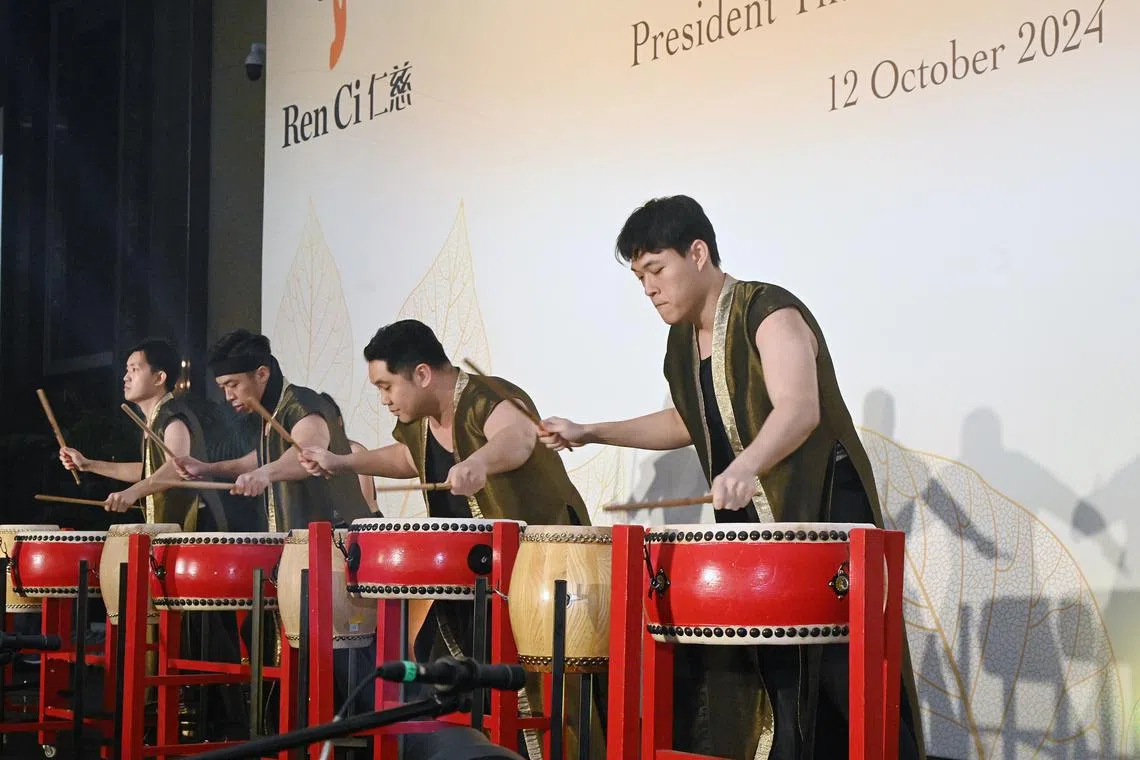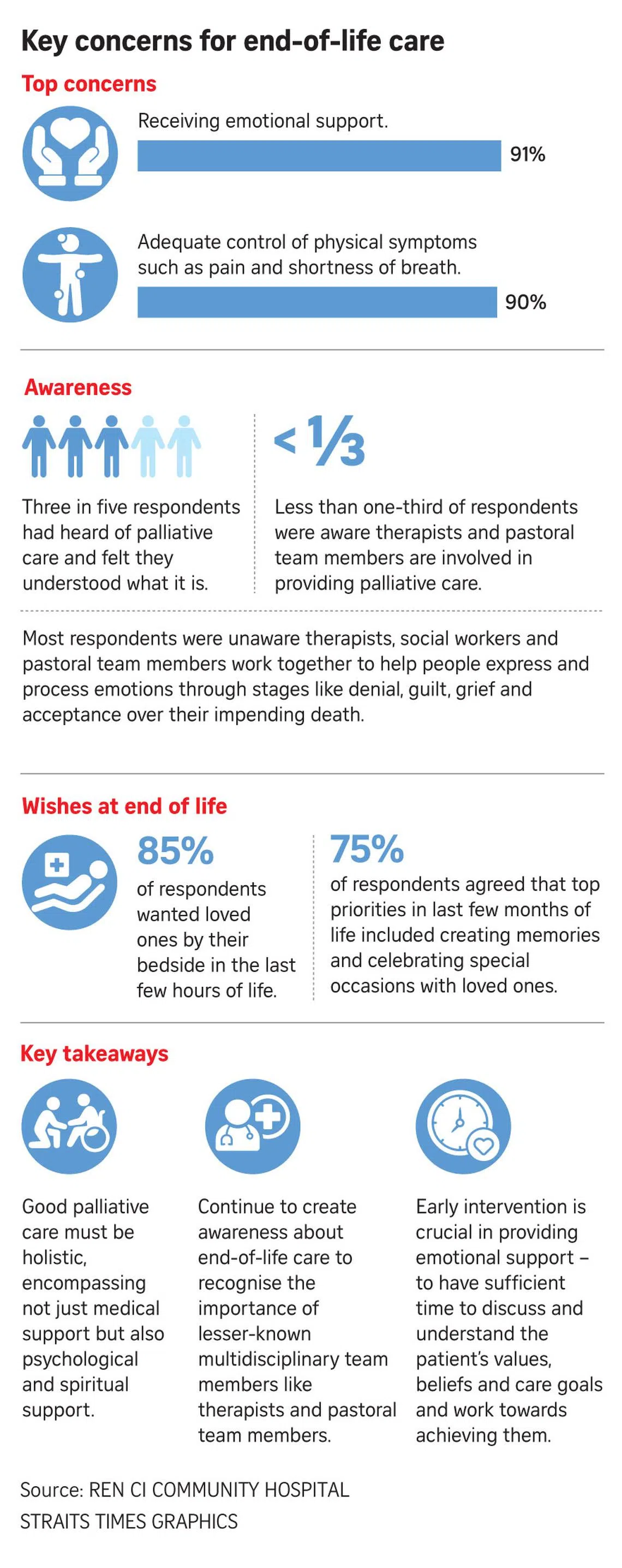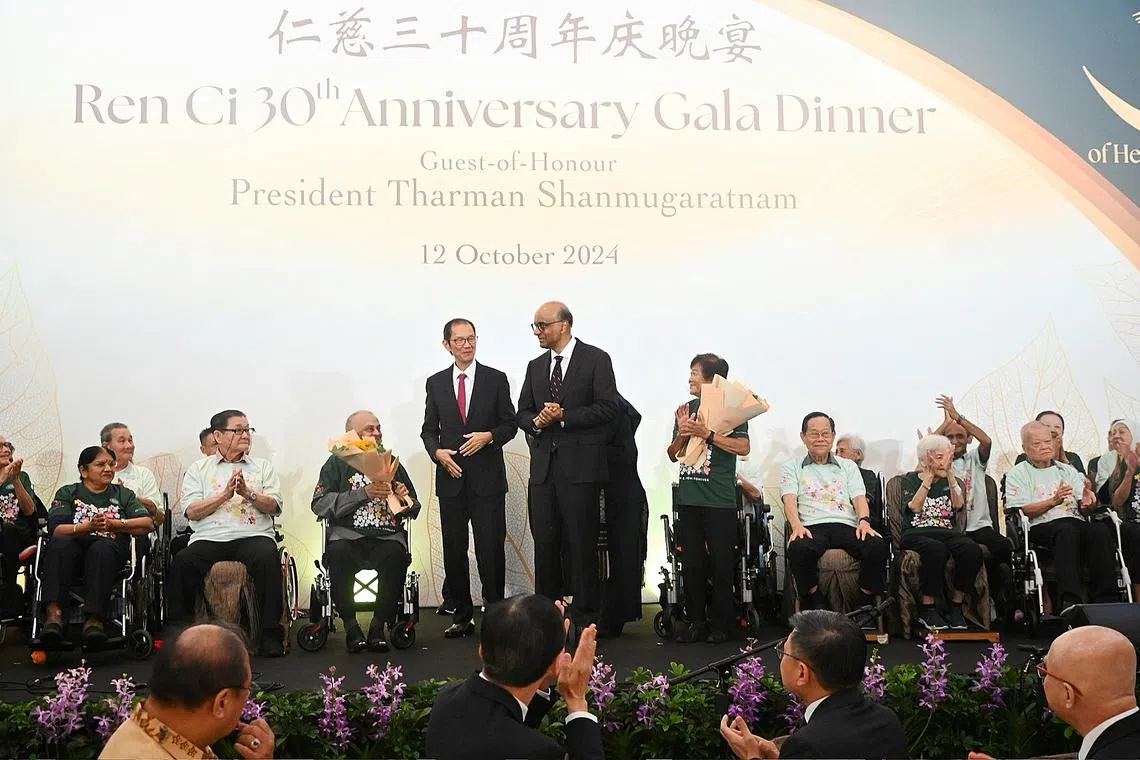S’poreans who know about palliative care already use healthcare services: Ren Ci Hospital study
Sign up now: Get ST's newsletters delivered to your inbox

Many Singaporeans mistake palliative care as primarily care of the dying, and overlook its broader scope.
PHOTO ILLUSTRATION: UNSPLASH
SINGAPORE – About three in five Singaporeans know what palliative care is because they are already in the system and are using healthcare services, a recent study found.
Conducted jointly by Ren Ci Hospital and Forbes Research from June to July, the survey of 500 respondents – comprising patients, residents, clients and their next of kin – was done through face-to-face interviews at Ren Ci’s nursing homes, its chronic sick unit and senior care centres, as well as telephone and online surveys with next of kin.
The results of the survey were revealed by Ren Ci chairman Seow Choke Meng during the charity healthcare institution’s 30th anniversary gala dinner at Shangri-La Hotel on Oct 12.
“What stood out from the finding was while 90 per cent wished for adequate control of physical symptoms, such as pain relief and shortness of breath, 91 per cent of respondents also felt they needed more emotional and psychological support,” Mr Seow said.
Ren Ci clinical director David Ng, who led the survey, said psychological and emotional support is key.
“Yet, less than a third of those surveyed were aware that therapists and pastoral team members are also involved in the provision of palliative care,” he said.
“This is where we can do more to continue to create awareness of the multidisciplinary team supporting the holistic provision of palliative care.”
Most respondents of the survey were unaware that therapists, social workers and pastoral team members work together to help people who are on their end-of-life journey process their emotions through stages such as denial, guilt, grief and acceptance as they come to terms with impending death.
Mr Simon Francis, 72, has since 2019 had chronic obstructive pulmonary disease, a lung disease usually caused by a combination of risk factors such as cigarette smoke or other chemical pollutants.
Once independent and active, he found himself relying on others for support, especially after the death of his wife in 2010, and this challenged his sense of identity.
Mr Francis joined Ren Ci’s ICare programme, a specialised rehabilitation scheme developed for patients with chronic breathlessness, and he received art therapy as part of psycho-social and emotional support.
In such therapy, art is used as the primary mode of expression to help participants express and articulate thoughts and feelings that may be difficult to talk about.
The art therapy helped Mr Francis verbalise thoughts about difficult times and emotions in his past and come to terms with them.
“I used to be fearful of the end of life. But the team helps me with treatments and I feel I do not need to worry. They also helped me understand more things about my health condition and I felt comforted,” he said.

Opening Performance during the Ren Ci Hospital’s 30th anniversary Charity Gala Dinner at Shangri-la Island Ballroom on Oct 12.
ST PHOTO: DESMOND WEE
Dr Ng told The Straits Times: “Our survey findings spotlighted a group of 500 individuals who already use community care or healthcare services for themselves or loved ones. Even among them, knowledge remains limited.”
He said it added to the findings of the recent Pulse on Palliative Care
Dr Ng said Pulse on Palliative Care “validated that many in the general population do not understand the full scope of palliative care, overlooking its broader scope to relieve symptoms and enhance quality of life throughout an illness trajectory”.
Carried out in July, the study found that many Singaporeans mistake palliative care as primarily care of the dying, even though the vast majority correctly identified it as relieving the suffering of people with a serious illness.

Ren Ci’s study helped the institution put in place a new five-year strategic plan to grow its palliative and mental care services, including strong components of psycho-social support.
“This includes collaborations with agencies and stakeholders to achieve better healthcare outcomes for the needy,” said Mr Seow.
Ren Ci’s 30th anniversary charity gala dinner raised $8.4 million.
In 2023, Ren Ci served more than 3,500 patients, clients and residents and Mr Seow said that number “will continue to grow as we ramp up capacity at Woodlands Nursing Home, our latest facility which officially opened in July”.
President Tharman Shanmugaratnam was the guest of honour at the event, which was also attended by Health Minister Ong Ye Kung; Minister for Digital Development and Information Josephine Teo; Senior Minister of State for Culture, Community and Youth, and Trade and Industry Low Yen Ling; and Speaker of Parliament Seah Kian Peng.

President Tharman Shanmugaratnamwith (centre, right) with Mr Seow Choke Meng, Chairman, Ren Ci Hospital and residents at Shangri-la Island Ballroom on Oct 12.
ST PHOTO: DESMOND WEE



